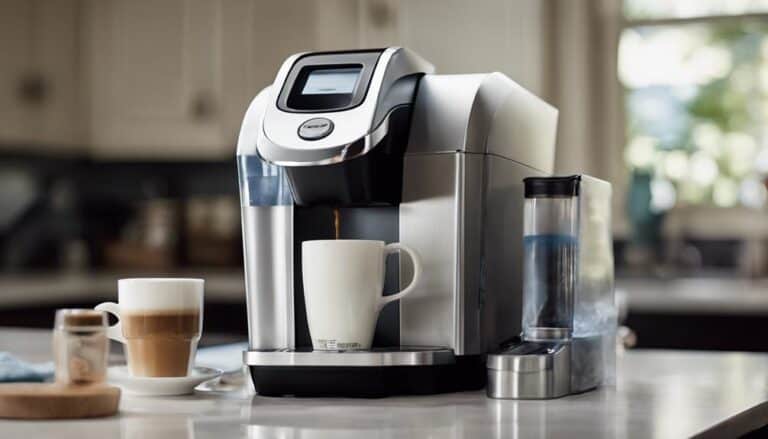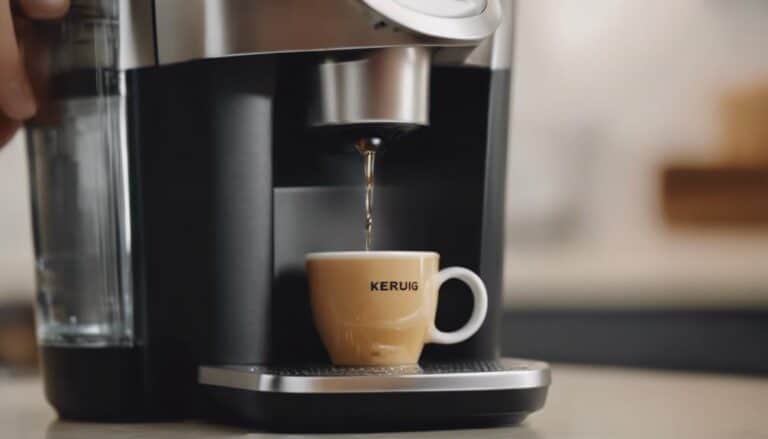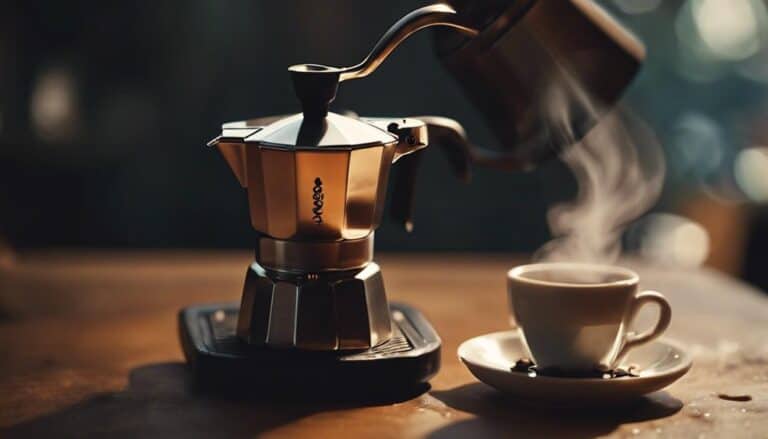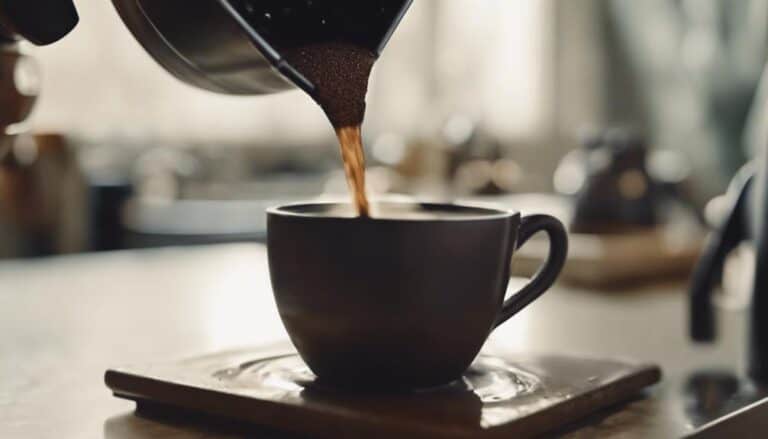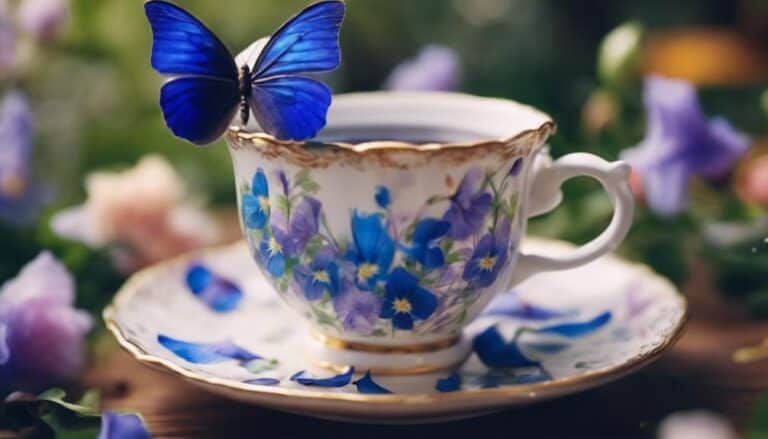How Much Caffeine Do Chai Tea Lattes Have?
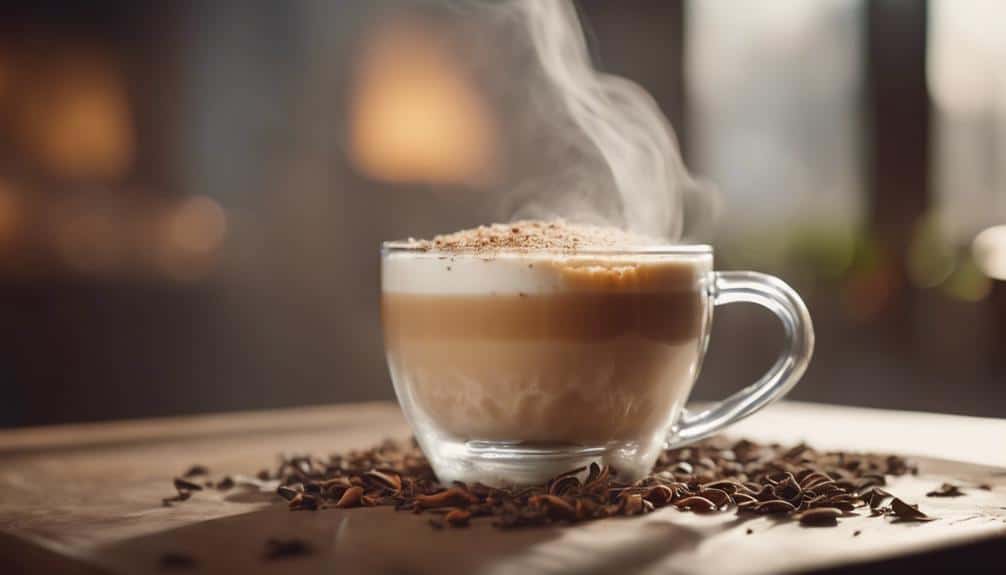
As I sipped on my favorite chai tea latte this morning, I found myself wondering about its caffeine content. The subtle kick it provides always enhances my day, but just how much caffeine am I really consuming with each velvety sip? The answer might surprise you. Let's uncover the mystery behind the caffeine levels in chai tea lattes and explore the nuances that make this beloved beverage a fascinating subject to explore further.
Factors Affecting Caffeine Content in Chai Lattes
When considering the caffeine content in Chai Tea Lattes, the type of black tea utilized significantly influences the final concentration. Different black teas have varying caffeine levels, impacting the overall potency of the Chai Latte. Additionally, the steeping time of the black tea is vital; a longer steeping period extracts more caffeine from the tea leaves, resulting in a higher caffeine content in the final beverage.
Moreover, the milk ratio in a Chai Tea Latte is an important factor in determining the caffeine levels. The more milk added to the latte, the more the caffeine is diluted per serving. Conversely, using a higher concentration of chai concentrate, which typically contains more caffeine than freshly brewed chai, can lead to a stronger caffeinated Chai Tea Latte.
Western Vs Traditional Chai Latte Caffeine
In comparing the caffeine content between Westernized and traditional Indian chai lattes, the distinction lies in the varying levels of caffeine present in their respective black tea bases. Traditional Indian chai lattes, deeply rooted in Indian culture, typically contain around 6-20mg of caffeine per ounce due to the robust black tea base they use.
On the other hand, Westernized versions, such as those found in popular coffee chains like Starbucks, tend to have a lower caffeine content, with approximately 6mg per ounce in a standard tall serving. This difference in caffeine levels offers consumers the benefit of a milder stimulant option compared to coffee, making chai tea lattes an appealing choice for those looking to reduce their overall caffeine intake.
Understanding the caffeine content in these beverages is essential for individuals managing their caffeine consumption for health reasons, highlighting the importance of being aware of the caffeine levels in both traditional Indian and Westernized chai lattes.
Impact of Steeping Time on Caffeine Levels
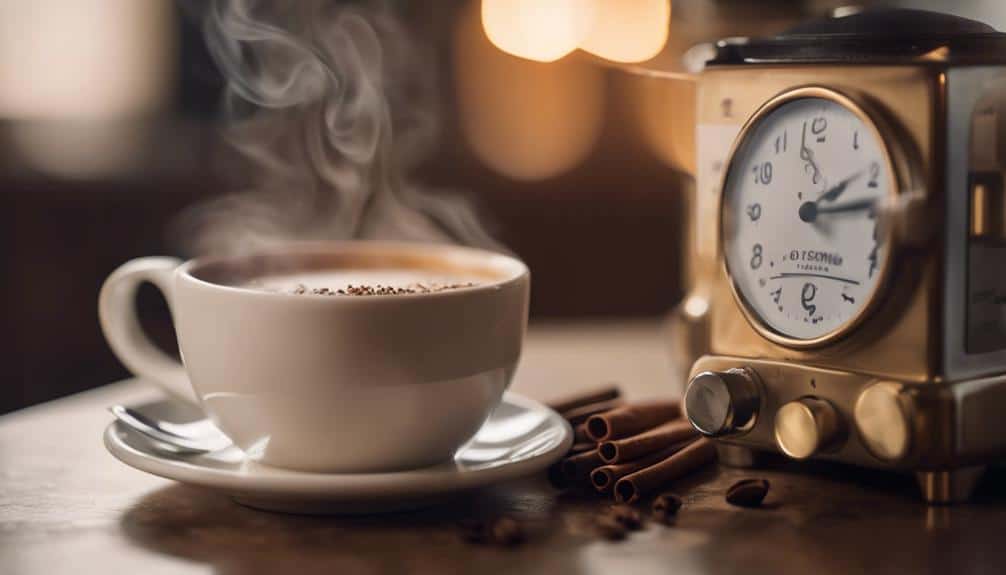
Steeping time significantly influences the caffeine levels present in Chai Tea Lattes, with variations ranging from 6 to 20 mg per ounce. Longer steeping times result in higher caffeine content due to increased extraction from the black tea leaves. Monitoring the steeping time is essential during the brewing process to customize the caffeine levels in Chai Tea Lattes according to individual preferences. Understanding this relationship allows for the management of caffeine intake for a balanced consumption experience.
| Steeping Time | Caffeine Levels (mg per ounce) |
|---|---|
| 2 minutes | 6 |
| 5 minutes | 10 |
| 10 minutes | 15 |
Black Tea Vs Espresso in Chai Lattes
Comparing the caffeine content between black tea and espresso in chai lattes reveals distinct differences in their stimulant levels. Black tea, the usual base for chai lattes, contains 30-50mg of caffeine per 8-ounce cup. This relatively mild caffeine content offers a gentle energy boost, contributing to the overall caffeine levels in chai lattes.
In contrast, espresso, a staple in coffee beverages, packs a higher caffeine punch compared to black tea. When combined with black tea and milk, espresso elevates the caffeine content in chai lattes. The fusion of black tea's mild caffeine with espresso's robust kick creates a unique flavor profile in chai lattes.
This blend results in a beverage that isn't only soothing but also slightly stimulating, making it a popular choice for those seeking a moderate energy boost.
Caffeine Accumulation in Larger Servings
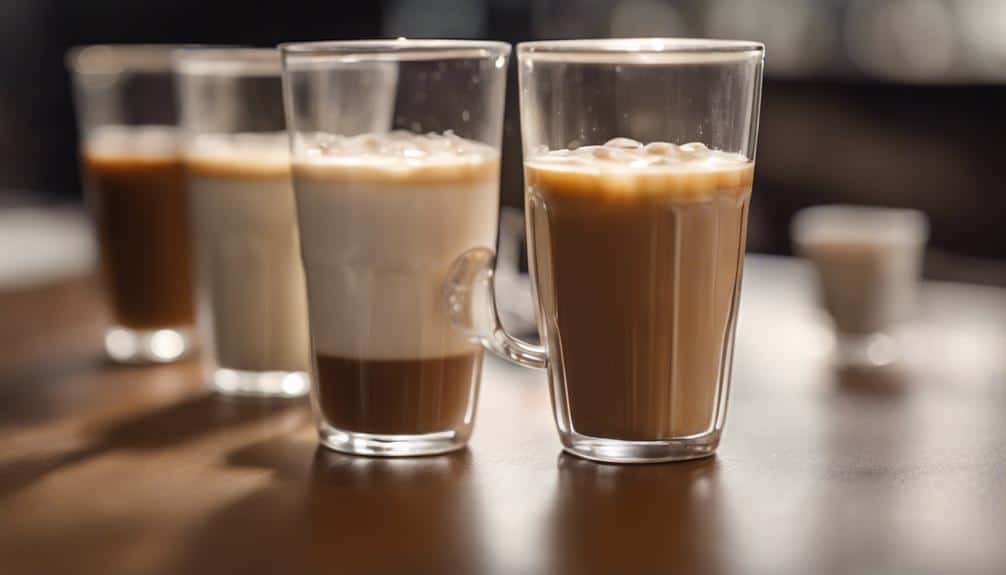
With larger servings of Chai Tea Lattes in the West, the potential for increased caffeine intake rises considerably due to the expanded volume of the drink. While a standard 8-ounce Chai Tea Latte typically contains 30-50mg of caffeine, larger sizes can harbor even more caffeine content.
It's crucial to monitor caffeine intake, especially when indulging in oversized Chai Tea Latte servings, to guarantee adherence to recommended daily limits. The caffeine levels in Chai Tea Lattes can fluctuate depending on the brewing method employed and the quantity of black tea utilized during preparation.
Being aware of the caffeine concentrations in various Chai Tea Latte sizes becomes paramount for effectively managing overall caffeine intake and mitigating potential adverse effects. By understanding the nuances of caffeine accumulation in larger Chai Tea Latte servings, individuals can make informed choices aligning with their caffeine tolerance and the recommended daily limits for a healthier consumption pattern.
Dirty Chai Latte and Caffeine Boost
When considering the caffeine content of a Dirty Chai Latte, the addition of espresso plays an essential role in elevating its energy-boosting properties.
The espresso infusion in this beverage offers a significant caffeine boost, enhancing the overall stimulatory effects.
Understanding the impact of espresso on the caffeine levels in a Dirty Chai Latte is important for individuals monitoring their caffeine intake.
Caffeine in Dirty Chai
Incorporating espresso into a Chai Latte transforms it into a Dirty Chai, greatly enhancing its caffeine content compared to a traditional Chai Latte. The espresso in a Dirty Chai Latte contributes approximately 63mg of caffeine per shot, elevating the overall caffeine levels in the beverage.
Depending on the number of espresso shots added, the caffeine content in a Dirty Chai Latte can vary from 95mg to 150mg per 8-ounce serving. The inclusion of espresso in a Dirty Chai Latte offers a more potent caffeine kick, leading to a heightened energy boost.
Understanding the caffeine levels in a Dirty Chai Latte is essential for managing overall caffeine intake and considering potential effects on health and sleep patterns.
Energy From Chai
A dirty chai latte, when prepared with a shot of espresso, noticeably enhances the caffeine content compared to a standard chai latte. The espresso in a dirty chai latte provides an extra energy boost alongside the traditional chai flavors. It's important to keep in mind the caffeine intake from a dirty chai latte to manage energy levels and prevent potential sleep disruptions. If seeking a stronger caffeine kick, opting for a dirty chai latte can be a flavorful and energizing choice.
| Aspect | Details |
|---|---|
| Caffeine Content | Significantly higher compared to a regular chai latte |
| Espresso Shot | Adds an extra energy kick to the drink |
| Energy Boost | Provides a flavorful way to increase energy levels |
| Managing Energy Levels | Understanding caffeine intake is vital for balanced energy levels |
| Potential Sleep Disruptions | Consider the impact on sleep patterns when consuming in the evening |
Managing Caffeine Intake Sensitivities

To effectively manage sensitivities to caffeine intake, understanding the exact amounts present in beverages like chai tea lattes is essential. Here are some key points to keep in mind:
- Daily Consumption: Monitoring daily caffeine intake is important for individuals sensitive to caffeine's effects on sleep and alertness.
- Lower Caffeine Option: Choosing chai tea lattes over high-caffeine beverages like coffee can help in reducing overall caffeine consumption.
- Informed Choices: Being aware of the caffeine content in chai tea lattes allows individuals to make informed decisions about their beverage choices.
- Managing Intake: Understanding the caffeine levels in chai tea lattes enables individuals to balance their overall caffeine intake throughout the day more effectively.
Importance of Mindful Consumption
Understanding the caffeine levels in chai tea lattes is vital for maintaining ideal consumption habits and managing overall caffeine intake effectively. Chai tea lattes typically contain 30-50mg of caffeine in an 8-ounce serving, which is less than half the caffeine found in a standard coffee.
Mindful consumption is essential due to the impact caffeine can have on alertness and sleep patterns if consumed excessively. By being aware of the caffeine content in chai tea lattes, individuals can better monitor their overall caffeine intake throughout the day, allowing for improved energy management and potential health benefits.
Moderation is key when enjoying chai tea lattes to balance the pleasure of the beverage with maintaining a healthy caffeine intake. Practicing mindful consumption of chai tea lattes can contribute to better alertness, improved sleep patterns, and overall well-being, making it essential to pay attention to caffeine levels and their effects on the body.
Conclusion
To sum up, understanding the factors that influence caffeine content in chai tea lattes is crucial for managing overall caffeine intake. By being mindful of the type of tea used, steeping time, and serving size, individuals can make informed choices to maintain ideal caffeine levels.
Balancing enjoyment of chai lattes with caffeine sensitivity is key to promoting energy management and well-being. Monitoring and adjusting consumption habits based on these factors can lead to a more balanced and healthy lifestyle.
